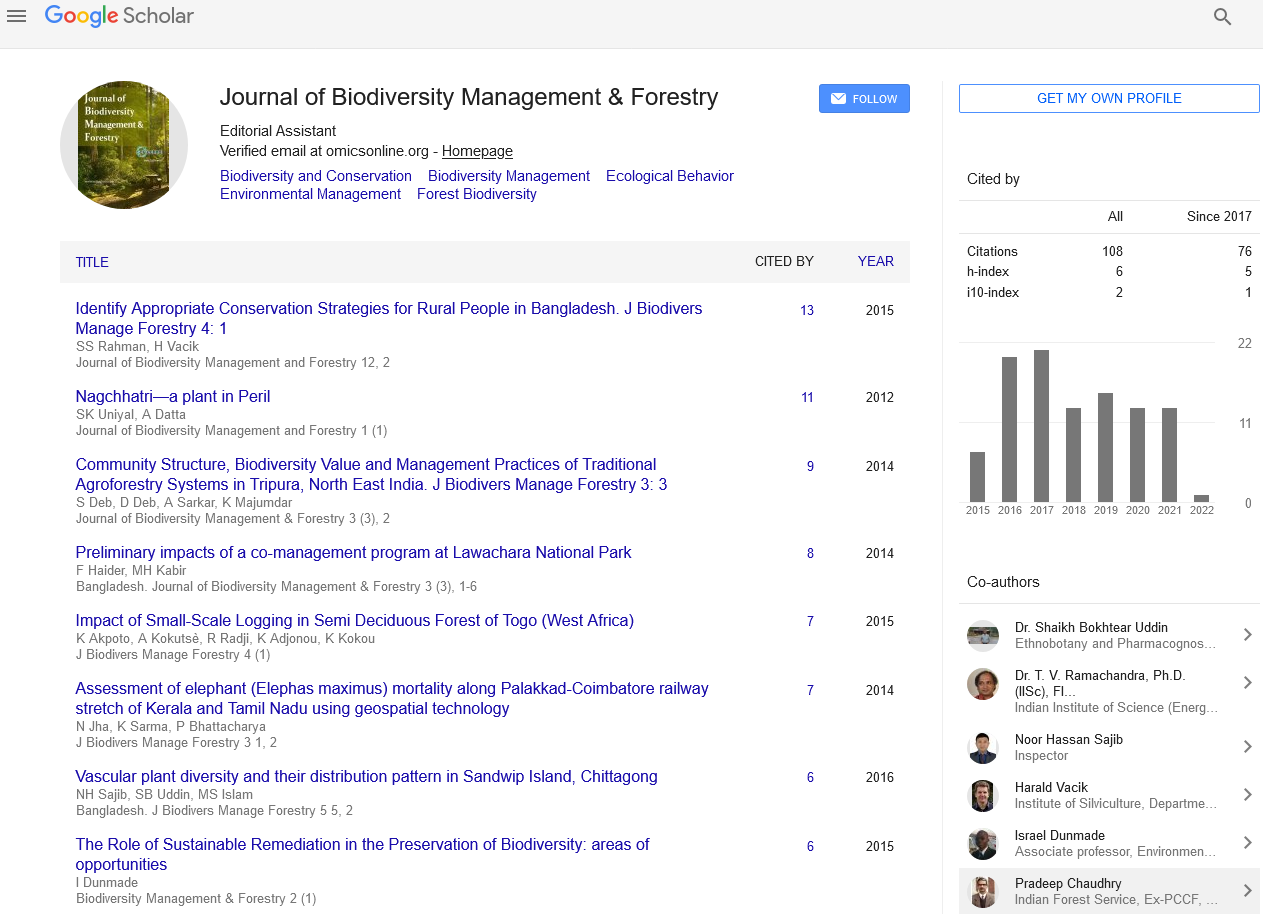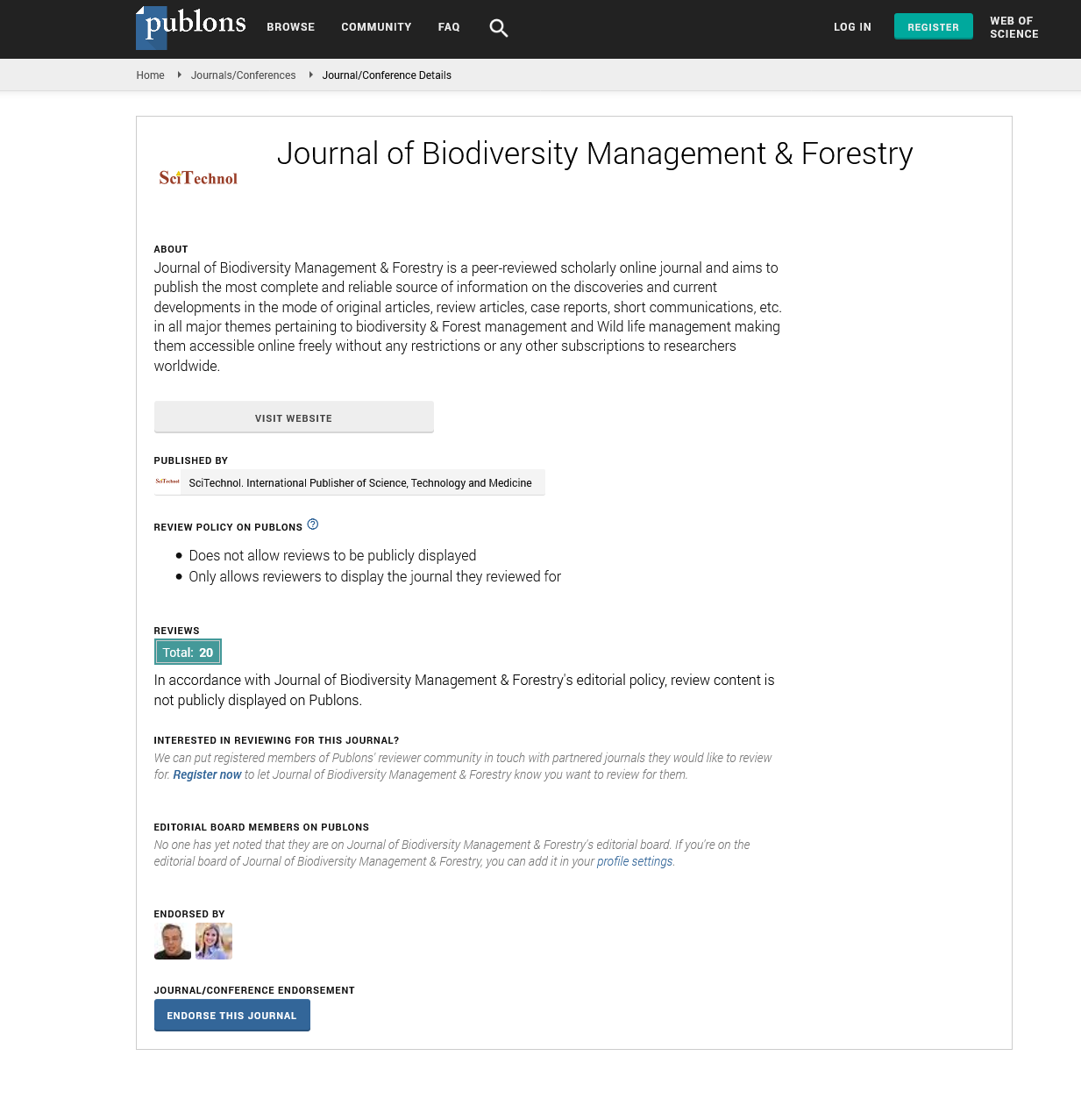Research Article, J Biodivers Manage Forestry Vol: 2 Issue: 1
Enhancing Biodiversity by Restoring Wetland Vegetation Communities in Irrigation Ponds
| Darby M. McGrath1* and Stephen D. Murphy2 | |
| 1Vineland Research and Innovation Centre, 4890 Victoria Avenue North, Vineland Station ON Canada, Thomas Street, Niagara Falls ON, Canada | |
| 2Department of Environment and Resource Studies, 200 University Avenue West, Waterloo ON, Canada | |
| Corresponding author : Darby M. McGrath Vineland Research and Innovation Centre, 4890 Victoria Avenue North, Vineland Station ON Canada L0R 2E0, 7700 Thomas Street, Niagara Falls ON, L26 6T2, Canada Tel: 1-905-562-0320(766) E-mail: darby.mcgrath@vinelandresearch.com |
|
| Received: January 11, 2013 Accepted: March 22, 2013 Published: March 28, 2013 | |
| Citation: McGrath DM, Murphy SD (2013) Enhancing Biodiversity by Restoring Wetland Vegetation Communities in Irrigation Ponds. J Biodivers Manage Forestry 2:1. doi:10.4172/2327-4417.1000106 |
Abstract
Enhancing Biodiversity by Restoring Wetland Vegetation Communities in Irrigation Ponds
The survival and establishment rates of five different densities and compositions of Scirpus atrovirens, Carex lacustris and Sagittaria latifolia were tested in a pilot study at two irrigation ponds in the Niagara Region, Ontario, Canada. Robust emergent wetland species were monitored to determine community assembly principles for water quality and biodiversity improvement in irrigation ponds. Growth trait and survival measurements were taken every two weeks in the growing season of 2011. A vegetation inventory occurred four times throughout the growing season. Using multivariate repeated measures analysis of variance (MANOVAR) we found that S. latifolia is capable of interspecific competition when planted in mixed plot plantings in semi-naturalized ponds. We found that S. atrovirens was more competitive in monoculture plantings in a pond community comprised of agricultural weed species. It is more difficult to establish C. lacustris making it a less suitable choice for restoration plantings in irrigation ponds. The findings suggest pre-restoration community composition will influence the survival establishment rates of some wetland plant species. Pond age may be an important determinant in the vegetative community composition in irrigation ponds.
 Spanish
Spanish  Chinese
Chinese  Russian
Russian  German
German  French
French  Japanese
Japanese  Portuguese
Portuguese  Hindi
Hindi 
